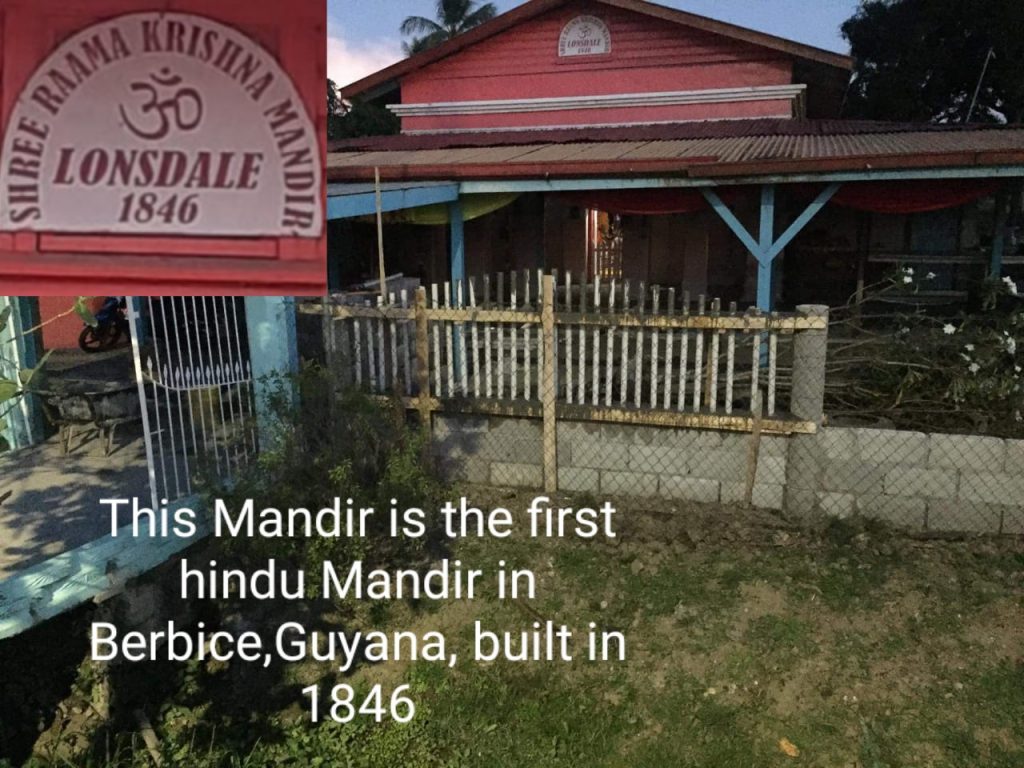Dear Editor,
About 8 kilometers from Highbury, East Bank Berbice, where the first batch of indentured servants landed on May 5, 1838 can be found the village of Lonsdale. In 2014 when my friend Rudy Rampersaud of Back Shop fame in DeEdward village took me for the first time in that area I noticed a sign on the Sree Ram Khishna Mandir in Lonsdale stating it was built in 1846. If this is correct it must have been the first temple in the country but which may not have been recorded in the history books. Curiosity took us back again in October 2015 but the caretaker was in his youthful fifties and the fountain of knowledge in his eighties was out of the country. We heard stories about the special alligator in the deep pond behind the temple which may be a tale children would enjoy. The pillars and the core structure was certainly unique.
Spirited discussions with a few academics did not resolve the issue. My brief research was not conclusive. On page 35 of Indians in Guyana, Basdeo Mangru states that in 1870 there we no mosques and only 2 Hindu temples in the county but I could not find the names. Neither could I find an answer in Temples and Mosques by Karna Bahadur Singh. However Peter Ruhomon in his History of East Indians in Guyana stated on page 259 that one Hindu temple was discovered in the island of Leguan and another high up the Berbice River when the Royal Commission visited in 1870.
Skeptics refer to the wandering and unsettled nature of the first Indians who were guaranteed return passage after 5 years as a reason why they would not want to set up a temple. From 1838 to 1841 there was an embargo on indentureship, and this was reimposed again in 1848 and was not continuous again until 1851. Why would anyone with hardly a roof over their heads and yearning to go back home build this place of worship? How were they able to fund it?
The number of Hindus actively involved in matters affecting their community seems to have increased recently. Disputes about historical events are also noted since they were not recorded. The Cove and john Ashram rose from swamp land; the premises at Cornelia Ida, WCD, on which sits the highly successful Saraswati Vidya Niketan was once a small temple; an octogenarian told me that the room I slept in at the school at Bush Lot, West Coast Berbice, was the very spot where the first mandir with mud walls was located. These are only some of the prominent projects with a history that predates the struggle for independence but their accuracy and completeness ought to be reduced to writing for the benefit of posterity.
Hopefully there is still an interest in this aspect of the country’s past and our historians/researchers can share with us any documentary or other evidence on the first Hindu temple in Guyana. I can be reached at ramjihindu@rogers.com
Ramnarine Sahadeo
Brampton, Ontario.
